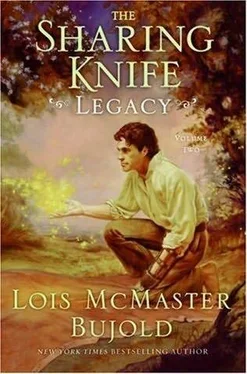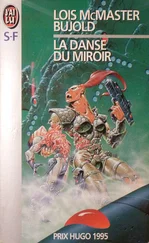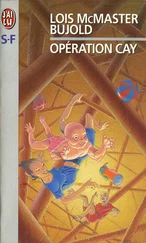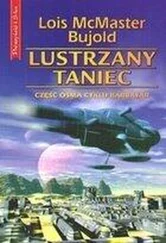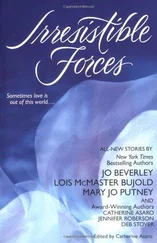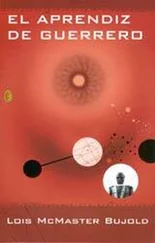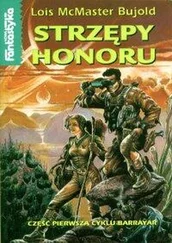“What, he could have made you not a patroller?”
“That’s right.”
Fawn gasped. “Oh, no! And I said all those mouthy things to him! You should have warned me! But he made me mad, talking over the top of my head.” She added after a moment’s reflection, “You all three did.”
“Mm,” said Dag. He pulled her into his left arm and rested his chin on her curls for a moment. “I imagine so. Things were moving pretty fast there for a while.”
She wondered if the patrollers had all been saying things to one another through their groundsenses that she hadn’t caught. For sure, she felt there was a good deal back there she hadn’t caught.
“As for Fairbolt, you won’t offend him by standing up to him, even if you’re wrong, but especially if you’re right. His back’s broad enough to bear correction. He doesn’t much care for folks who go belly-up to him to his face then whine about it behind his back, though.”
“Well…stands to reason, that.”
“Indeed. You didn’t make a bad impression on him, Spark. In fact, judging from the results, you made a pretty good impression.”
“Well, that’s a relief.” She paused in puzzlement. “What results?”
“He put my peg in the sick box. Still a patroller. The camp council deals with any arguments the families can’t solve, or arguments that come up between clan heads. But any active patroller, the council has to go through the camp captain to deal with. It’s like he’s clan head to all of us. I won’t say Fairbolt will or even can protect me from any consequences of this”—he shrugged his left arm to indicate his marriage cord—“but leastways he’s keeping that possibility open for now.”
Fawn turned to untie the horses, considering this. The tailpiece seemed to be that it was Dag’s job—and hers? — to keep the consequences from getting too out of hand. As she scrambled up on Grace, she saw under some pear trees at a little distance Mari sitting on a trestle table swinging her legs, and Massape Crow on the bench beside her. Mari seemed to be talking heatedly, by the way she was waving her arms, and Massape had her head cocked in apparent fascination. Fawn didn’t think she needed groundsense to guess the subject under discussion, even without the curious glances the pair cast their way.
Dag had wrapped Copperhead’s reins around his hook. Now he led the horse beside the porch and used the steps for a mounting block, settling into the saddle with a tired grunt. He jerked his chin by way of a come-along gesture and led them onto the shore road, heading back east.
F awn turned in her saddle to look as they passed the woodland road they’d come in on, and turned again as the shore road bent out toward a wooden bridge spanning a channel about sixty feet across. The next island spread west, bounding the arm of the lake across from the patroller headquarters. Past the bridge, its farther shoreline curved north and the lake beyond opened out for a square mile. In the distance she could see a few narrow boats being paddled, and another with a small triangular sail. The island reached by the bridge had only a scattering of trees; between them horses and goats and a few sheep grazed, and beneath them more black pigs dozed.
“Mare Island?” Fawn guessed.
“Yep. It and Foal Island, which you can’t see beyond the far end over there”—Dag waved vaguely northwest—“are our main pastures. No need to build fences, you see.”
“I do. Clever. Is there a Stallion Island?”
Dag smiled. “More or less. Most of the studs are kept over on Walnut Island”—he pointed to a low green bump across the open lake patch—“which works fine until one of the fellows gets excited and ambitious and tries to swim across in the night. Then there’s some sorting out to do.”
The shore road swung back into the trees, passing behind the clusters of log buildings along the lake bank. After a scant quarter mile, Dag pulled up Copperhead and frowned at a clearing enclosing just two buildings. The lake glimmered dully beyond in the hot afternoon’s flat light. “Tent Redwing,” Dag said.
“Well”—Fawn took a breath—“this is it, I guess.”
“Not quite. Everyone seems to be out. But leastways we can drop off our saddles and bags and take the horses back to pasture.”
They rode into the clearing. The two buildings were set facing each other at an angle opening toward the lake, both with long sides gaping under deerhide awnings. Other deerhide rolls along the eaves looked as though they could be dropped down to provide more wall at need. Houses and porches seemed to be floored with planks, not dirt, at least. Fawn tried to think simple, not squalid. A stone-lined fire pit lay in the clearing between the two structures—Fawn still could not make herself think of them as tents—in addition to the central fireplaces that could apparently heat both the outer and the enclosed inner chambers. Seats of stumps or sawn-off logs were dotted about; in summer, no doubt almost all work was done outdoors.
She hopped down and helped unsaddle, dealing with the straps and buckles; Dag with his hook hauled the gear from the horses’ backs and dumped it on the plank porch of the house on the right. He scratched the back of his head gently.
“Not sure where Mama’s got off to. Dar’s likely at the bone shack. And if Omba’s not out on Mare Island, it’ll be a first. Dig down in the bottom of my saddlebags, Spark, and find those strings of horseshoes.”
Fawn did so, discovering two bunches of new horseshoes tied together, a dozen each. “My word, no wonder your bags were so heavy! How long have you been carting these around in there?”
“Since we left Glassforge. Present for Omba. Hickory Lake’s a rich camp in some ways, but we have few metals in these parts, except for a little copper-working near Bearsford. All our iron has to be traded for from other camps, mostly around Tripoint. Though we’ve been getting more from farmer sources in the hills beyond Glassforge, lately.” He grinned briefly. “When a certain young exchange patroller from Tripoint walking the hinterlands arrived at Massape Crow and said, That’s far enough, it’s told his bride-gift string of horses came in from back home staggering under loads of iron. It made the Crows rich and Fairbolt famous, back in the day.”
Fawn led Grace to a log seat and climbed up bareback, and Dag hooked her up the horseshoe bundles, which she twisted about each other and laid over her lap. He climbed up on Copperhead in turn, and they went back out to the road and returned to the bridge.
At the far end of the span he dismounted again to unhook a rope loop from the board gate, open it for Fawn, and shut it again behind them. He did not bother remounting, but led them instead toward a long shed that lay a hundred paces or so away. Fawn slid off Grace, managing not to drop the horseshoes, and Dag hooked off both bridles, flopping them over his shoulder. Copperhead scooted away at once, and after a moment’s doubt, Grace followed, soon putting her head down to crop grass.
Of all of his relatives, Dag had talked most freely about his brother’s wife, the Waterstrider sister who’d changed her name for her mother-in-law’s sake. In order of increasing reticence came his grandfather, remembered with nostalgia from scenes of Dag’s youth; Dar, of whom Dag spoke with cool respect; his father, tinged with distance and regret; and, in a pool of silence at the center, his mother. Every conversation Fawn had tried to lead toward her, Dag had led away. About Omba—horse trainer, mare midwife, maker of harness, and, it appeared, farrier—there had been no such problem.
As they rounded the corner of the shed and stepped under its wooden overhang, Fawn had no trouble recognizing Omba, for she came striding out of a door crying, “Dag! Finally!” She was not so thin as Mari, and quite a bit shorter, though still as tall as any man in Fawn’s family; Fawn would have guessed her age at fifty or so, which meant she was likely fifteen years older than that. She was dressed much like a patroller woman, and Fawn finally decided that the trousers were just Lakewalker riding garb, period. Her skin, though tanned and weathered, was paler than Dag’s, and her eyes a pretty silvery blue. Her dark hair, shot with a few white streaks, ran down her back in a single swift plait, without ornament. She caught sight of the sling, planted her hands on her hips, and said, “Absent gods, brother, what have you done to your right arm!” And then, after a momentary pause, “Absent gods, Dag, what have you done to your left arm?”
Читать дальше
